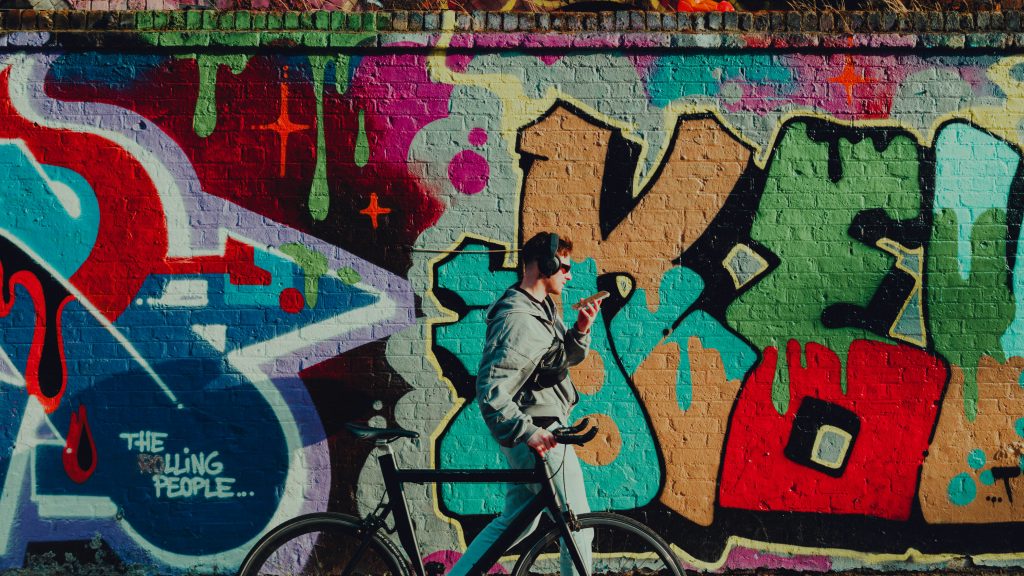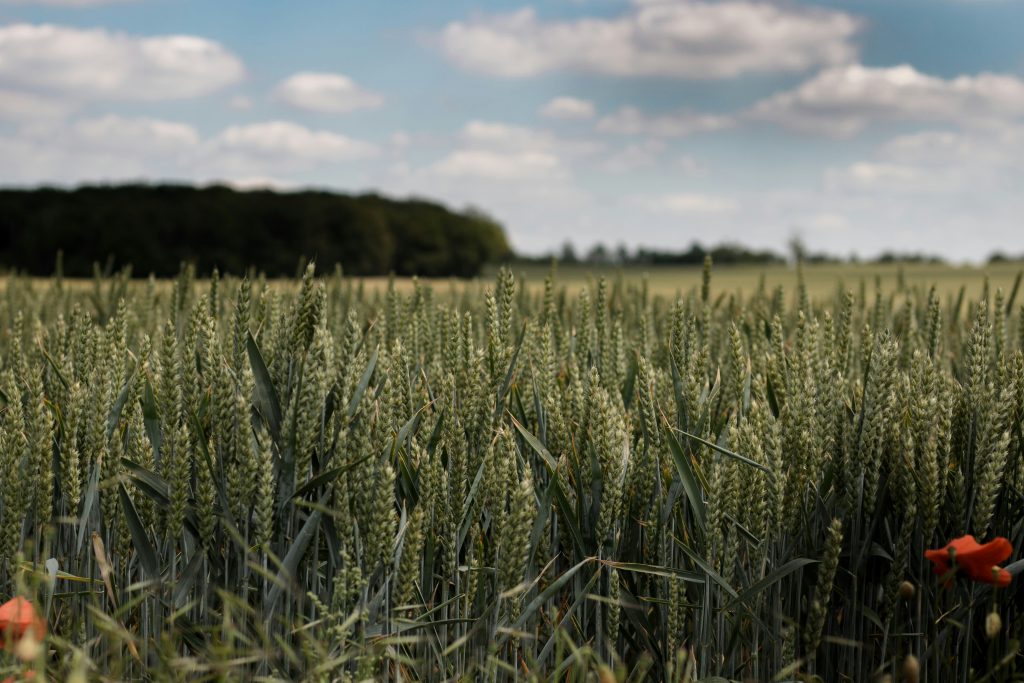2025年疫苗接種新選擇:Novavax疫苗將助力不適合mRNA接種者
# 2025年疫苗接種新選擇
隨著全球對COVID-19疫苗的需求不斷上升,各國政府和公共衛生機構持續探索更全面的接種方案。最新消息顯示,衛生福利部疾病管制署(疾管署)計劃在2024年採購20萬劑Novavax JN.1疫苗,以便為不適合接種mRNA疫苗的民眾提供安全有效的選擇。
## 疫苗接種的多樣性
在過去的幾年中,mRNA疫苗如輝瑞和莫德納因其高效性而受到廣泛推崇。然而,並非所有人都適合接種這類疫苗,部分人群可能因健康狀況或過敏反應而無法接種。這種情況下,尋找替代疫苗成為當前的迫切需求。
Novavax疫苗作為一種蛋白質亞單位疫苗,提供了一個重要的選擇。這類疫苗相比mRNA疫苗有著不同的工作機制,對某些人來說,其安全性和耐受性可能更高。疾管署的決定無疑將為這一人群提供了一條新的防線,讓他們也能參與到疫苗接種的行列中來。
## 政府的努力與承諾
政府的這一決策顯示出對公共健康的極大重視,尤其是在接種疫苗的可及性上。疾管署不僅僅是傳遞疫苗接種的必要性,還在積極尋找解決方案,以滿足不同民眾的需求。這樣的努力不僅能提高疫苗的接種率,更能增強社會對疫苗的信心。
此外,上交所和深交所也宣布將暫免收取部分2025年度費用,進一步促進經濟的復甦。這一系列措施無疑為2025年帶來了更多的希望和可能性。
## 提高疫苗接種率的必要性
隨著COVID-19疫情的持續,疫苗接種的必要性愈發凸顯。根據最新的數據顯示,全球仍有數百萬人尚未接種疫苗,這不僅影響了個體的健康,也對社會的整體防疫工作形成挑戰。因此,提供多樣的疫苗選擇,尤其是針對特殊人群的選擇,顯得尤為重要。
## 結語
2025年,將是各界共同努力的一年。無論是政府在疫苗接種上的堅持,還是社會對健康的重視,都預示著未來將有更多的可能性。我們期待著,透過這些努力,最終能實現全民健康,讓每個人都能安心面對未來的挑戰。
在接下來的日子裡,讓我們共同關注疫苗接種的進展,並為健康的明天而努力。
Tags: 2025, COVID-19, Novavax, 公共健康, 疫苗接種
The Lasting Bond: A Tribute to Brotherhood Through Art and Resilience
In a heartfelt exploration of friendship and advocacy, the story of three brothers who met at the University of Virginia serves as a poignant reminder of the power of connection amidst adversity. As the world grapples with the remnants of the COVID-19 pandemic, the enduring spirit of these individuals shines through their commitment to community and the arts. The AIDS Memorial Quilt, a symbol of loss and remembrance, is currently on display at UTA Libraries. It represents not just the fight against a devastating disease but also the unity that can emerge from shared experiences. Lisalee Egbert, an assistant professor in the Department of Modern Languages, emphasizes the significance of this quilt, showcasing how it serves as a canvas for stories, memories, and the enduring love between brothers, friends, and allies. The quilt’s panels are stitched together with narratives of hope and resilience, reminding us that while challenges may arise, the bonds we form can withstand the test of time. The journey of David Sherman, who adeptly navigated his organization through the tumultuous waters of a global pandemic, encapsulates the essence of leadership and empathy in times of crisis. His guidance has not only sustained the organization but has also inspired others to find strength in solidarity. This sentiment resonates deeply with the experiences of Stepanian, Heard, and Brent, who, each in their own right, have faced and overcome obstacles, demonstrating that true brotherhood is forged in the fires of adversity. As they reflect on their journey, they remind us that connections formed in moments of struggle can lead to profound transformations. The brothers’ story is not just about their personal experiences; it speaks to a broader narrative of community resilience. It challenges us to recognize the power of collective action and the importance of supporting one another through thick and thin. As we navigate the complexities of modern life, we are reminded that our shared humanity binds us together, urging us to stand united against challenges and to celebrate our victories, no matter how small. This exhibition, enriched by the stories of those who have contributed to it, serves as a call to action. It invites us to reflect on our own relationships and the ways we can uplift one another in our communities. As we honor the memories encapsulated within the quilt, we are also reminded of the living legacy of those who continue to fight for justice and equality. The narrative of these brothers is a testament to the belief that love, friendship, and solidarity can conquer even the darkest of times. In this ongoing journey, let us commit ourselves to fostering connections that empower and inspire. Let us celebrate the bonds that hold us together, for it is through these relationships that we find the strength to face whatever challenges lie ahead. As we look to the future, may we carry with us the lessons learned from the past and the stories of those who have walked this path before us. In doing so, we can create a tapestry of resilience that honors not only the memories of those we have lost but also the enduring spirit of brotherhood that unites us all.
Tags: AIDS Memorial Quilt, Brotherhood, Brothers, community support, COVID-19, Resilience
Explosive Revelations: Bob Woodward’s New Book Uncovers Trump’s Secret Communications with Putin
In a groundbreaking new release, veteran journalist Bob Woodward dives deep into the murky waters of international politics in his latest book titled “War.” The book reveals startling details about former President Donald Trump’s clandestine communications with Russian President Vladimir Putin, shedding light on a series of private phone calls that have raised eyebrows and ignited controversy. According to Woodward, Trump engaged in as many as seven secretive conversations with Putin after leaving office, a revelation that has sent shockwaves through political circles.
One of the most shocking claims made by Woodward is that Trump discreetly facilitated the transfer of coveted Covid-19 tests to Putin for personal use, suggesting a level of intimacy and cooperation that many may find unsettling. This revelation not only highlights the complexities of US-Russia relations but also raises questions about Trump’s judgment and priorities during a global health crisis. The book paints a vivid portrait of a former president who, while in office, maintained a unique and controversial relationship with one of America’s most significant geopolitical adversaries.
Woodward’s insights are further underscored by reactions from current political figures. Trump’s campaign communications director dismissed the book as belonging in the “bargain bin,” a response that underscores the contentious nature of the revelations. However, the implications of Woodward’s findings cannot be easily dismissed.
The book also offers a comparative analysis of how both Trump and current President Joe Biden have navigated international crises, leading Woodward to conclude that Trump’s actions were more reckless than those of former President Nixon, who famously resigned amidst the Watergate scandal. This assertion not only serves as a stark indictment of Trump’s foreign policy decisions but also positions Biden’s approach in a more favorable light, at least in comparison to his predecessor.
As the political landscape continues to evolve, Woodward’s book serves as a timely reminder of the ongoing complexities of international relations. It raises critical questions about accountability, transparency, and the ethical considerations that leaders must grapple with in their dealings on the global stage.
The revelations contained within “War” have the potential to reshape public perception of Trump’s presidency and his legacy in American politics. As readers digest the implications of these secretive communications, they are left to ponder the broader questions of trust and integrity in leadership.
In a world where information is often weaponized, Woodward’s commitment to uncovering the truth serves as a beacon of journalistic integrity. As the fallout from these revelations continues to unfold, it remains to be seen how they will impact the political narrative moving forward. Will Trump’s secretive dealings with Putin tarnish his legacy further, or will his supporters rally around him once more? Only time will tell.
In conclusion, Bob Woodward’s “War” is not just a book; it’s a critical piece of the puzzle in understanding the intricate dynamics of power, secrecy, and the ongoing saga of American politics. As the dust settles on these explosive revelations, one thing is clear: the conversation about Trump’s presidency and its ramifications is far from over.
Tags: Bob Woodward, COVID-19, Donald Trump, International Relations, Vladimir Putin
Jerry O’Connell Steps In as Host for ‘Big Brother’ Amid COVID-19 Concerns
In a surprising twist for fans of the hit reality show ‘Big Brother,’ Jerry O’Connell has taken the helm as host for the upcoming live eviction episode. This change comes as the show’s regular host, Julie Chen Moonves, is sidelined due to a positive COVID-19 test. As the world continues to grapple with the pandemic, the decision to bring in O’Connell reflects both the unpredictability of live television and the ongoing health concerns that have affected many aspects of our daily lives.
O’Connell, known for his charisma and experience in the entertainment industry, steps into this role at a critical time for ‘Big Brother.’ The show has garnered a devoted fanbase, and with the stakes higher than ever in the competitive environment of the house, fans are eager to see how O’Connell will handle the pressures of hosting an eviction episode. This will mark a unique chapter in the show’s history, as he navigates the complexities of live television while ensuring that the excitement remains high.
Julie Chen Moonves announced her absence via social media, expressing her disappointment in missing the live event but emphasizing the importance of health and safety. Her fans have rallied behind her, sending well wishes for a swift recovery. Meanwhile, O’Connell’s involvement has sparked conversations among fans and commentators alike, with many curious about how his hosting style will differ from Chen’s and how he will engage with the houseguests during this pivotal moment.
As the live eviction approaches, anticipation builds. The dynamics within the house are ever-changing, and the decisions made during this episode could significantly impact the players’ futures in the game. O’Connell’s role as a temporary host adds an unexpected layer to the proceedings, creating a unique atmosphere as he brings his own flair to the show.
The entertainment industry has seen numerous adaptations and changes in response to the COVID-19 pandemic, and ‘Big Brother’ is no exception. The need for flexibility and quick adjustments has become paramount, and this situation exemplifies the challenges faced by producers and networks in maintaining continuity while prioritizing the health of cast and crew. O’Connell’s participation is a testament to the resilience and adaptability that many in the industry have had to embrace.
As viewers tune in for this special episode, they will not only be watching for the outcome of the eviction but also for how O’Connell manages to keep the energy alive amidst the unforeseen circumstances. With the camera rolling and the audience watching intently, every moment is critical.
In conclusion, Jerry O’Connell’s debut as a temporary host for ‘Big Brother’ is set against the backdrop of a global pandemic, bringing to light the current realities of the television industry. As he takes on this new challenge, both fans and critics will be keenly observing his performance, hoping for an engaging and entertaining evening. This episode serves as a reminder of the unpredictability of live television and the importance of community support in the face of health challenges. Tune in to witness this historic moment in ‘Big Brother’ history!
Tags: Big Brother, COVID-19, Jerry O'Connell
Meta’s CEO Admits Government Pressure on Content Moderation Amid Controversy
In a recent letter to the House Judiciary Committee, Meta’s CEO expressed regret over the company’s response to governmental pressure regarding content moderation on its platform. This marked a significant moment in ongoing discussions about the balance between free speech and the responsibilities of social media companies. Zuckerberg revealed that his team faced considerable influence from the federal government, especially during the COVID-19 pandemic, leading to decisions that many now question.
The correspondence, addressed to Rep. Jim Jordan, highlighted the complexities of navigating regulatory expectations while maintaining a commitment to free expression. Zuckerberg acknowledged that, while it was ultimately Meta’s decision to remove certain content, he believes the pressure exerted by the administration was inappropriate. His statements have sparked a broader conversation about the extent to which government entities can influence private companies in the realm of information dissemination.
Critics argue that such pressures undermine the foundational principles of free speech, raising alarms about potential overreach by those in power. As social media platforms continue to play a pivotal role in public discourse, the challenges of managing misinformation, particularly during critical times like a pandemic, become increasingly pronounced.
Zuckerberg’s admission may serve as a catalyst for further inquiries into the relationship between tech giants and government interventions. It also reflects a growing need for clearer guidelines on content moderation policies that respect user rights while addressing public health and safety concerns. As the debate continues, stakeholders from various sectors will be watching closely to see how Meta and other social media companies evolve their practices in response to these revelations.
The implications of this situation extend beyond Meta; they touch upon the broader landscape of digital communication and the responsibilities that come with it. The dialogue surrounding free speech and corporate accountability is far from over, and how these issues are resolved could set significant precedents for the future of social media governance.
As we navigate this complex terrain, it is crucial for lawmakers, companies, and the public to engage in meaningful discussions about the ethical responsibilities of social media platforms and the role of government in regulating content. The stakes are high, and the outcomes will undoubtedly shape the future of digital interaction and public discourse.
In conclusion, Zuckerberg’s recent revelations underscore the urgent need for transparency and accountability in the digital age. As society grapples with the implications of technology on communication, it is essential to foster an environment where free speech is protected while also addressing the need for responsible content moderation.
Tags: content moderation, COVID-19, Free Speech, Government Pressure, Mark Zuckerberg, Social Media
U.S. Households Set to Receive Free COVID-19 Tests Again This Fall
In a significant move aimed at bolstering public health measures, the U.S. government has announced that households across the nation will once again be eligible to order free COVID-19 tests. This initiative is part of a broader strategy to manage the ongoing pandemic and ensure that citizens have access to necessary health resources. Starting at the end of September, each household can order up to four nasal swab tests through the designated website, Covidtests.gov. The reopening of this federal program comes as many regions in the country continue to experience high levels of COVID-19 activity, emphasizing the importance of regular testing in controlling the spread of the virus. Officials highlighted that the availability of these tests is crucial for early detection and prevention, allowing individuals to take proactive measures to protect themselves and their communities. As cases surge in various parts of the country, the administration is committed to providing essential tools to help manage the public health crisis. The initiative aims not only to facilitate easier access to testing but also to encourage more residents to stay vigilant about their health. By ensuring that free tests are readily available, the government hopes to mitigate the impact of the virus as it continues to evolve. This fall, as the weather changes and people begin to gather indoors more frequently, the timing of this initiative could not be more critical. Health experts advocate for widespread testing as a key component of public health strategies, particularly as the nation navigates through fluctuating case numbers. The announcement aims to reassure citizens that the government is taking necessary steps to support public health and that testing resources will be accessible to all. With the rollout of free COVID-19 tests, individuals are encouraged to take advantage of this opportunity to safeguard their health and that of those around them. The upcoming months will be pivotal in the ongoing fight against COVID-19, and the accessibility of these tests is a significant step forward in managing the pandemic effectively. As the situation continues to evolve, the government remains committed to adapting its strategies to meet the needs of the population, ensuring that health resources are available to everyone. This initiative represents a proactive measure in the face of a persistent challenge, reinforcing the importance of community health and individual responsibility in combatting the spread of COVID-19.
Tags: COVID-19, Free COVID tests, Free Testing, Public Health Initiative
COVID-19 Vaccination Rates Decline Amid Summer Surge
As the summer season unfolds, the nation is grappling with a renewed surge of COVID-19 cases, raising alarm among public health officials and communities alike. Recent data has highlighted concerning trends in vaccination rates, revealing the states with the lowest levels of vaccine coverage among adults. This is particularly alarming as the country faces a potential increase in hospitalizations due to the virus.
The summer months typically bring an uptick in social gatherings and travel, which can contribute to the spread of the virus. Experts warn that lower vaccination rates in certain regions may exacerbate the situation, putting unvaccinated individuals at higher risk of severe illness if they contract the virus.
Additionally, for individuals living with multiple sclerosis (MS), the stakes are even higher. Recent studies indicate that these individuals possess a heightened risk of experiencing severe COVID-19 infections. While vaccines have proven effective in reducing the severity of the disease, there are ongoing concerns about the potential for relapse in MS patients post-vaccination. This adds another layer of complexity to the already challenging narrative surrounding COVID-19 and its variants.
Public health campaigns are becoming increasingly crucial as the summer progresses, particularly in states where vaccination rates lag behind the national average. Health officials are urging residents to take proactive measures, including getting vaccinated, to protect themselves and their communities.
As we navigate through this summer surge, the importance of public awareness and education cannot be overstated. Communities are encouraged to engage in discussions about the benefits of vaccination, especially in areas where misinformation may be prevalent. Health experts are also stressing the need for individuals with chronic conditions, such as MS, to consult with their healthcare providers about their vaccination options and any concerns they may have.
In conclusion, while the nation prepares for a busy summer, it is critical to keep COVID-19 in focus. With vaccination rates varying significantly across states and the potential risks for vulnerable populations, collective action and informed decision-making are essential as we strive to overcome the challenges posed by the pandemic. The coming weeks will be pivotal in determining how effectively we can manage the resurgence of COVID-19 and protect those most at risk.
Tags: COVID-19, Vaccination Rates
The Ongoing Battle Against COVID-19: Masks, Funding, and Healthcare Strain
As the world continues to navigate the complexities of the COVID-19 pandemic, new findings and local variations in case numbers offer a nuanced picture of the ongoing challenges. Face masks remain an essential tool in preventing the spread of COVID-19, especially as vaccination rates vary across different regions. Experts emphasize that the decision to wear masks should be guided by individual vaccination status, highlighting the importance of personal responsibility in public health measures.
In Arizona, the state is not witnessing a significant summertime surge in COVID-19 cases like its neighbor, California. However, localized spikes in infections remind us that the threat of the virus is still present. This fluctuation in case numbers stresses the need for continued vigilance and adaptive public health strategies.
Recent research has shed light on the treatment of COVID-19, particularly concerning intravenous remdesivir for pregnant patients. The pharmacokinetics and safety of this medication in this vulnerable group are critical for informing treatment protocols and ensuring the health of both mothers and their babies during the pandemic.
On the financial front, significant federal funding has been allocated to combat the effects of the pandemic. For instance, a report indicates that Governor Tony Evers has utilized 94% of the $5.1 billion in COVID-19 relief funds under his discretion. This financial commitment underscores the state’s efforts to bolster its healthcare system and support its residents during these trying times.
Healthcare professionals globally have faced unprecedented stress throughout the pandemic. The burden on healthcare facilities has been considerable, raising concerns about burnout and the long-term sustainability of healthcare services. The situation has improved compared to the initial phases of the pandemic, with many healthcare providers reporting that COVID-19 patients are in a better condition and hospitals are more equipped to handle cases. Nonetheless, the path to recovery for healthcare systems is ongoing, and the psychological toll on healthcare workers cannot be overlooked.
As we continue to monitor the pandemic, it is crucial to recognize that while vaccines have provided a layer of protection, the virus is still capable of spreading. Therefore, ongoing public health measures, including the use of masks and social distancing, remain vital in reducing transmission. The experiences shared by healthcare professionals and the data from different states illustrate a landscape that is both improving and still fraught with challenges.
In conclusion, the battle against COVID-19 is far from over. Public health officials, healthcare providers, and communities must remain proactive in their efforts to curb the virus’s spread while supporting those affected by its consequences. The commitment to safety measures, responsible funding allocation, and the well-being of healthcare workers will play significant roles in shaping the future of public health.
Tags: COVID-19, Healthcare Funding, Public Health Measures, Vaccination
Noah Lyles Fights Through Illness to Secure Bronze in 200m Final at Paris Olympics
In an inspiring display of determination and resilience, American sprinter Noah Lyles competed in the Men’s 200-meter final at the Paris Olympics despite battling a recent COVID-19 diagnosis. Just days before the race, Lyles received the unfortunate news of his positive test, which would have sidelined many athletes. However, Lyles, known as the “World’s Fastest Man,” chose to push through the illness and make his mark on the track.
The final took place in front of a roaring crowd at the Stade de France, where Lyles faced tough competition from his fellow athletes. In a thrilling race, Lyles finished third, securing the bronze medal behind his teammate Kenneth Bednarek and the impressive Letsile Tebogo from Botswana, who clinched gold with a time of 19.46 seconds. Despite not achieving the gold he had hoped for, Lyles expressed pride in his performance, stating that competing under such circumstances made the achievement even more meaningful.
Lyles’ journey to the final was fraught with challenges, as he had to manage both his physical health and the intense pressure of competing at the highest level. His mother revealed the emotional toll of the situation, highlighting Lyles’ dedication and the support system that surrounded him during this difficult time. As one of the most recognized figures in athletics, Lyles’ experience resonates with many, showcasing the spirit of sport and the will to overcome adversity.
This year’s Olympics have been marked by unexpected events, including several athletes testing positive for COVID-19. Lyles is not the only athlete facing such challenges, yet his story stands out due to his prominent status and the high expectations placed upon him. The pandemic has changed the landscape of competitive sports, and Lyles’ participation amid illness highlights the ongoing struggles athletes endure.
In reflecting on the race, Lyles noted, “I’m proud of myself for making it to the line, especially under these circumstances. It’s a testament to the hard work and dedication that I put in over the years.” His humility and sportsmanship serve as a reminder that the Olympics are not only about winning but also about the journey and the stories behind each athlete’s performance.
Looking ahead, Lyles’ experience is likely to spark conversations about athlete health and safety, particularly as the world continues to navigate the repercussions of the pandemic. His determination to compete, even when faced with illness, may inspire future athletes to prioritize their health while also pursuing their dreams.
As the Olympics draw to a close, the stories of resilience and courage, like that of Noah Lyles, will remain etched in the memories of fans and participants alike, reminding everyone of the true spirit of the Games. The competition may have concluded, but the legacy of athletes who fight against the odds will continue to inspire generations to come.
Tags: 200m, COVID-19, Letsile Tebogo, Noah Lyles, Noah Lyles 200m, Olympics
Joe Rogan’s Controversial Return to Stand-Up Comedy: A Deeper Dive into ‘Burn the Boats’
In a bold comeback, Joe Rogan has returned to the stand-up stage with his latest special, ‘Burn the Boats,’ streaming live on Netflix. After a six-year hiatus from stand-up comedy, Rogan, who is equally renowned for his podcasting prowess, has reignited discussions surrounding his contentious views on various socio-political issues. His performance has sparked significant debate, particularly regarding his remarks on COVID-19 vaccines and the transgender community, two subjects that have increasingly polarized public opinion.
Rogan’s special, which aired on August 4, showcased his unique blend of humor and controversial commentary, reflecting his unapologetic style. Critics have noted that his tendency to mock the transgender community and question the efficacy of COVID vaccines continues a pattern observed in his past performances and podcasts. Such material has drawn ire from advocacy groups and supporters of science-based public health measures, raising concerns about the potential influence of his platform on public perceptions.
In one segment, Rogan’s jests about the COVID vaccine were met with laughter, but they also highlighted a troubling trend where comedic narratives intersect with misinformation. This repetition of themes, particularly those that disparage marginalized communities, ignites a discourse about the responsibilities of public figures in shaping societal norms and values.
Additionally, Rogan’s references to controversial figures like Alex Jones and Elon Musk further added to the spectacle, as he navigated through humor that often straddles the line of sensitivity. The comedian’s commentary appears to resonate with a specific audience, one that thrives on pushing boundaries, but it simultaneously alienates those who advocate for inclusive and respectful dialogue.
The launch of ‘Burn the Boats’ continues to fuel ongoing conversations about free speech in comedy, especially in the context of societal change and the evolving landscape of identity politics. While Rogan’s fans celebrate his fearless approach to comedy, critics argue that his jokes can perpetuate harmful stereotypes and misinformation.
As the dust settles on the release of ‘Burn the Boats’, it remains clear that Joe Rogan’s return to stand-up is more than just comedy; it is a reflection of a broader cultural clash. The reactions it has garnered underscore the challenges faced by comedians in a time when humor intersects with sensitive social issues. The special serves as a reminder of the power of comedy to both entertain and provoke thought, even when the subjects tackled are divisive.
In conclusion, Joe Rogan’s latest Netflix special is not merely a showcase of comedic talent; it is a litmus test for the current climate of discourse surrounding health, identity, and freedom of expression. As audiences grapple with the implications of his humor, the question remains: how do we reconcile the art of comedy with the impact of its messages?
Tags: Comedy, Controversy, COVID-19, Free Speech, Joe Rogan, Transgender Issues










